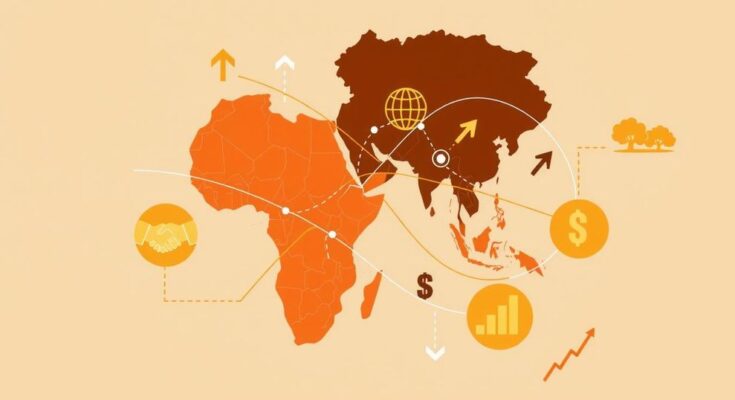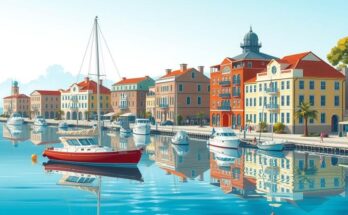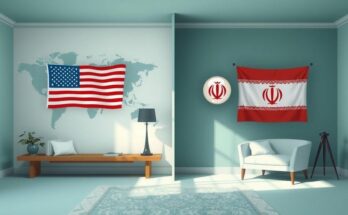As France withdraws its military from West Africa, Turkey seeks to exploit the surge of opportunities in the region. Analysts indicate that Turkey’s investment and existing relationships position it favorably to fill the void. However, cautions about resource overstretch and the need for sustainable strategies persist as Turkey faces challenges both economically and diplomatically.
Turkey is positioning itself to capitalize on opportunities presented by France’s recent military withdrawal from the Sahel and West Africa. Analysts suggest that as France reduces its military presence, Turkey, an established NATO member and arms exporter, could fill the gap left behind. However, it must be cautious not to overextend its resources in the region.
The withdrawal of French forces from locations such as Côte d’Ivoire and Chad indicates a significant reduction in France’s military engagement, which experts attribute to local political pressures rather than constraints. According to Federico Donelli, an international relations specialist, this shift opens the door for new players like Turkey to increase their influence in Africa.
Turkish President Recep Tayyip Erdogan has heavily invested in Africa, quadrupling the number of Turkish embassies across the continent in the last twenty years. Donelli emphasizes that Erdogan’s approach leverages Turkey’s Muslim identity, appealing to African nations by reminding them of France’s colonial legacy.
Elem Tepecikoglu from Ankara’s Social Sciences University suggests that Turkey’s chance for growth in Africa arose mainly from France’s failure to address insurgent threats effectively, leading to a tarnished image of French military efforts in the region. He notes that rising anti-French sentiments and Turkey’s existing defense agreements with Sahelian countries present favorable conditions for increased Turkish involvement.
Increased military cooperation was highlighted in a meeting between Turkish and Senegalese officials, where Senegal expressed a desire for the withdrawal of French troops. Turkey’s competitive defense industry, offering affordable military equipment such as drones, has gained traction in African markets, particularly among countries like Nigeria and Mali.
Though Turkey is a smaller player compared to nations like Russia and China, the growing rivalry between Western and Eastern powers could benefit Ankara, making security agreements with Turkey seem politically favorable for African nations. Donelli points out that engaging with Turkey, a NATO member, poses fewer risks than aligning with Russia.
Nonetheless, analysts caution against Turkey’s rapid expansion in Africa due to the potential for overstretch. International relations expert Huseyin Bagci warns that Turkey’s increased military and diplomatic presence may strain its limited resources, suggesting that a strategy for stability rather than aggressive expansion may be more prudent as Turkey navigates its economic challenges and seeks improved ties with Europe.
Turkey’s ambitions in Africa appear significantly boosted by France’s military withdrawal, allowing Turkey to broaden its influence in the region. However, as Turkey capitalizes on this opportunity through diplomatic ties and military agreements, it must remain vigilant against overstretching its resources and capabilities amidst a complex international landscape. This cautious approach could foster sustainable relationships and bolster Turkey’s standing as a key player in African affairs.
Original Source: www.rfi.fr




